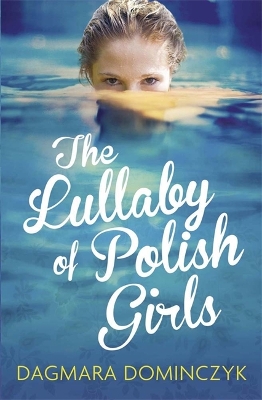
Leah
Written on Jul 4, 2013
The Lullaby Of Polish Girls errs on the side of contemporary fiction, it’s not warm and fuzzy like Chick Lit can be, I suppose literary is the term I would use, if I had to use one, but I enjoyed it very much. It has a fairly simple plot, in that the novel follows the lives of three women; Anna, Justyna, and Kamila. They grew up together in Poland, spending the summers joined at the hip, but as they’ve gotten older they’ve grown further and further apart. Anna’s in New York, Kamila’s in Detroit and Justyna’s in Poland, and all of their lives are falling apart. When Anna learns that Justyna’s husband has been murdered, she sees it as the perfect opportunity to abandon her life in New York, and go back and see if Poland is as she remembers it from her youth.
I really enjoyed The Lullaby of Polish Girls. I was quite taken with the way in Poland your name isn’t your name, and you’re rarely called by your name, instead Polish people use a ksywy, which is a nickname based on the person and Dagmara Dominczyk kept that in to keep the novel as authentic as possible, and I thought it was amazing, how many different variations Anna’s name had, and everyone else. When I first read Dagmara’s author note, I did fear it would confuse me massively, but it was actually really easy to decipher who everyone was. I even managed to decipher most of the Polish words used in the novel – although, to be fair, Dagmara used the simpler Polish words like Aunt & Uncle, and grandparents etc. I couldn’t pronounce ANY of the Polish words though, it sounds a bit like Parseltongue in Harry Potter, and it’s definitely a language you either get or don’t get, and I can never wrap my tongue around the complicated words.
I would definitely recommend The Lullaby of Polish Girls. Dagmara Dominczyk is a fabulous writer, able to get into the minds of three young Polish girls, all trying to forge their own lives amidst a lot of upheaval and heartbreak. It isn’t my usual read, there’s no romance or fuzziness or warmth, it’s rather abrupt, honest, abrasive, but it works. It’s brutally, fantastically honest, and I found myself captivated by the novel. Each of the girls’ lives are lives you’re desperate to read more of, and Dagmara could definitely revisit the girls in a second novel if she so wished, because it would be nice to see these girls get happy endings, that’s the romantic in me speaking, obviously. I look forward to reading more from Dagmara Dominczyk, because this was a wonderful, honest debut novel.
